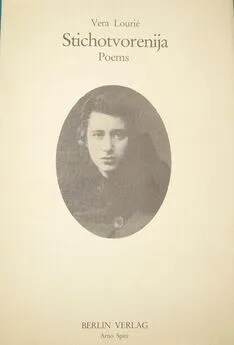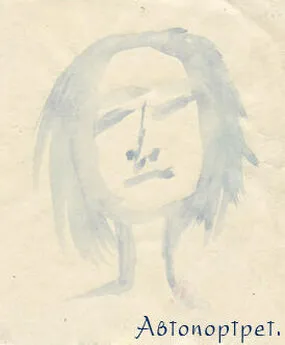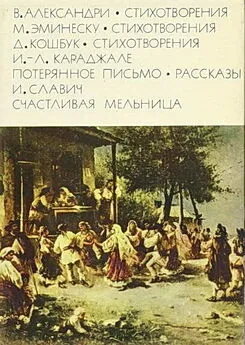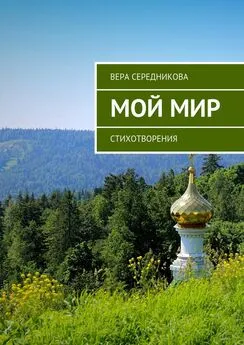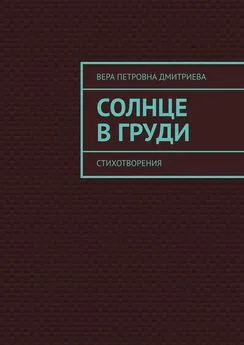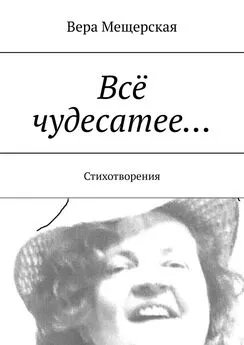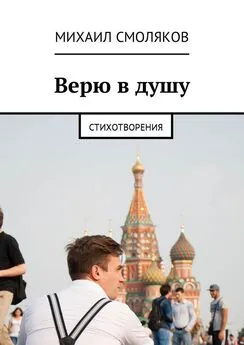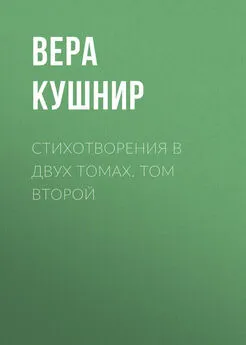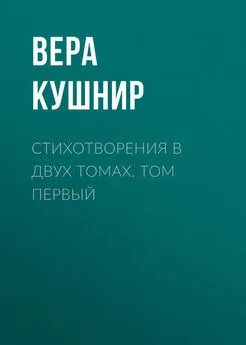Вера Лурье - Стихотворения
- Название:Стихотворения
- Автор:
- Жанр:
- Издательство:Berlin Verlag
- Год:1987
- Город:Берлин
- ISBN:3-87061-326-2
- Рейтинг:
- Избранное:Добавить в избранное
-
Отзывы:
-
Ваша оценка:
Вера Лурье - Стихотворения краткое содержание
Вера Лурье (1901–1998) — русская поэтесса «первой волны» эмиграции. Член поэтической студии Н. С. Гумилева «Звучащая Раковина» при Доме искусств. Осенью 1921 года эмигрировала в Берлин Выступала как литературный критик в изданиях «Голос России», «Дни», «Новая русская книга» и других. Регулярно публиковала стихи в газете «Дни». Печаталась в берлинских коллективных изданиях: альманахе «Струги» (1923) и сборнике стихов «Невод» (1933). Дружила с Андреем Белым, входила в сложившийся в городе круг русской интеллигенции (чета Эренбург, Нина Берберова, Александр Бахрах.
По мнению критиков, стихи Веры Лурье выдержаны в акмеистическом ключе.
В основе данного электронного издания — единственная книга поэтессы «Стихотворения» (Зап. Берлин, 1987). Предисловие Томаса Р. Байера на англ. языке.
Стихотворения - читать онлайн бесплатно полную версию (весь текст целиком)
Интервал:
Закладка:
ВЕРА ЛУРЬЕ. СТИХОТВОРЕНИЯ (Западный Берлин, 1987)
Thomas R. Beyer. Introduction
Vera Lur’e, the poetess, member of the «Sounding Sea-Shell», is living in Berlin (Charlottenburg, Neue Kantstr. 48). Until October 1921 she was in Petrograd, where she was first published in the collection Sounding Sea-Shell. She has prepared for publication a collection of poems.
The collection of poetry announced over sixty years ago in Novaja Russkaja Kniga in 1922 has at last been printed. For six decades the poems which chronicle a young Russian girl’s journey through life have been safeguarded in the slim, tattered notebooks in her bottom desk drawer. Almost everything else is gone: the books with the inscriptions by famous Russian authors of the 1920’s, the newspaper clippings and journals containing her articles, reviews and poems. Only the memories arrested in time by the poet’s gift remain. They are an affirmation of her only real profession and her first love-poetry.
The excitement of the House of the Arts in Petrograd is long gone. The charged intellectual atmosphere of «Russian Berlin», the glorious days between 1921 and 1923 when almost all of Russia’s literary giants resided in or visited Berlin are past. Berlin — the center of Russian language publishing, home to dozens of Russian newspapers and scores of journals, is now an almost forgotten footnote in the history of Russian literature.
Vera remembers that time when she was an active participant in Russian cultural life. And when almost all the others departed Berlin in 1923, Vera remained. After three quarters of a lifetime spent in Berlin, she is as much a part of that city as she once was of Saint Petersburg. She is a unique witness and her poetry eloquently records for us the history of «Russian Berlin».
Vera Osipovna Lourie (Lur’e) was born in Saint Peterburg on April 21, 1901 (N.S.). Her father was a physician with his own clinic on Goroxovaja Street. Her mother, Maria Pavlovna Schessin (Xessin), was the daughter of a wealthy stock broker. Vera was raised in the comfortable and sheltered atmosphere of the well-to-do and spent her first years in a house on the Fontanka and later at 48 Morskaja Street. A Swedish nanny, an Estonian governess and later a private tutor shepharded her through childhood and shielded her from the outside world, where everything was «dangerous».
At the age of twelve Vera entered the third grade of the Taganceva Gymnasium, an exclusive school for girls. Because of the Revolutinon she completed only the seventh of eight classes. From early childhood she was exposed to an international perspective because of her travels with her family. Summers were often spent at the picturesque health resorts of Germany and the outbreak of World War I found the family in Switzerland, from where they were forced to undertake a roundabout journey of train and ship to Odessa and then home to Petrograd.
The revolutions of February and October 1917 brought new found freedom to Vera, so longed for by her young spirit, but at a considerable price. The first step in her literary career came when she began to visit the Dom Iskusstv (House of the Arts) in Petrograd. The House was officially opened on December 19, 1919 to provide for the material needs of Russian writers and artists and atmosphere in which their creative work could continue and flourish. There were regular meetings on Friday evening and lectures on Monday, in which some of the leading figures of the day participle Korneiy Chukovkij, Maksim Gorkij, Evgenij Zamjatin, the poets Andrej Belyj, Aleksandr Blok, Nikolaj Gumilev and the critics Boris Ejxenbaum and Viktor Shklovskij. In addition, several «studios» were opened based on the model established by Gumilev in the spring of 1919 at the World Literature . By September of 1920 over three hundred fifty students were enrolled and several new sections ware added.
Vera attended the studio of the famed director Nikolaj Evreinov on the «Philosophy of Theater» and the poetic studio of Gumilev. Gumilev was one of the maior figures of Acmeism and his simplicity of structures, world selection and rhythms can all be felt in the poetry of his student. Vera was clearly infatuated by him, flattered by his attentions and remembers fondly how Gumilev spent the evening of April 21, 1921 celebrating her twentieth birthday at her home.
Gumilev was also the guiding spirit of a group of young poets who called themselves Zvuchashaya Rakovina (Sounding Sea-Shell), which included along with Vela Lur’e, Nikolaj Tixonov, Konstantin Vaginov, Georgij Ivanov and Irina Odoevceva. In the group’s collection «dedicated to the memory of our friend and teacher N.S. Gumilev» of which only 1000 copies were published in Petrograd in 1922 can be found three of Vera’s earliest poems, and her only poems to be published inside of Russia: «My body aches from sleplessness…» and «The church transparent from the sun…»
The poet’s association with Gumilev came to a tragic and shock ing end for the twenty year old girl, Returning from a meeting of the Sounding Sea-Shell in early August 1921 Gumilev was arrested. Just a few days later Aleksandr Blok, the shining light of Russian poetry, died. Vera along with the literary elite ol Russia attended his tuneral and a few weeks later would attend services in the Cathedral of Kazan for Gumilev who had been executed by the Soviets.
Like many others, Andrej Belyj, Maksim Gorkij, Aleksej Remizov, Vera left Russia in the fall of 1921. After stopping in Riga for about a month, she made her way to Berlin. At first her family lived in a series of Pensions and then later in one furnished apartment after another until 1933 when Vera moved into the apartment which has been her home for the last fifty years.
It is in Berlin that Vera, only twenty years old, entered the center of Russian literary life. Here she was a close friend of the Erenburgs, knew Aleksej Remizov, spent time with her friend from Petersburg, Nina Berberova, and others such as Vladislav Xodasevic and Aleksandr Вахтах. The most significant encounter in Berlin was with Andrej Belyj, whom she met at a meeting of the Berlin House of the Arts at the Landgraf Cafe .
Belyj, the one time golden haired boy of Russian Symbolism, was in die midst of the most productive period of his literary life. Everywhere he was in demand for public appearances. He was editor erf the newly opened journal, Epopeja , a member of the board of directors of the House of the Arts, President of the Free Philosophical Association in Berlin. He was a regular contributor to juornals and newspapers, was busy rewriting his novel Petersburg revising his completed poetical works and writing his monumental memories of Aleksandr Blok. Before his return to Russia in October 1923 Belyj would publish over twenty volumes of poetry, prose criticism and philosophy.
Vera met Belyj at the peak of his popularity in Berlin — the would follow also his decline and see him through one of the most difficult periods in his life, his final separation from his first wife, Asja Turgeneva-Bugaeva.
What was the relationship? What was the fascination? For Vera, Belyj was an “untouchable.” Twenty years separated the miidle-aged idol from his starry-eyed admirer. She was complimented and encouraged by his praise for her early poetic efforts and her reviews. She enjoyed his attention and was captivated by the exciting figures in his company. And she desired his love.
Belyj, on the other hand, was probably flattered by the attentions of this attractive young lady, a lovely dancing partner, a youthful companion, who could help him to forget some of the pain of Asja. By most accounts Belyj treated Vera poorly; even as she cared for him and loved him, she watched him distracted by Marina Cvetaeva, his German Mariechen and then Klavdija Vasil’eva.
The close association with Belyj and the arrival of her close friend Nina Berberova in July 1922 with Vladislav Xodasevic coin— j cided with a flurry of literary activity and the publishing career of Vera Lourie. She wrote many reviews for the important bibliographical journal, Novaja Russkaja Kniga (New Russian Book). She was also a regular contributor to two of the major Russian language daily newspapers in Berlin, Golos Rossii (The Voice of Russia) and its successor, Dni (Days). Throughout 1922 and 1923 Vera published over j twenty poems and more than forty reviews and articles.
Almost as quickly as they had begun, Vera’s literary opportunities and aspirations apparently ended. The Russian literary community abandoned Berlin in the fall of 1923. The economic crisis of that year heralded for most a return to conditions similar to those Russia after the Revolution and during the Civil War. The publishing industry, one of the major drawing cards for the literary elite, collapsed and most of the writers, many friends of Vera, scattered to Prague or Paris, while others returned to Soviet Russia. While they were free to Vera, still a young girl, remained behind with her family in Berlin The glamor, excitement and the glory of her former Petersburg and Berlin days were replaced with more earthly concerns.
Vera offered private lessons in Russian and French, but by 1924 her writing came to a halt. “I don’t write poetry, the poems write themselves.” For ten years the inspiration and the urge to write poetry were simply not there. There were a number of occasions, however, which proved that the poetic gift had not disappeared, but had simply been dormant. Two poems appeared in the collection Nevod by a group of Russian poets in Berlin in 1933. Between 1935 and 1941 Vera wrote a handful of poems to her new love, A.V. Poznjakov. Once again tragedy struck, and fate separated Vera from her love and source of her inspiration. Poznjakov was arrested and sent to Dachau where he would became one more victim of Hitler’s Germany.
Vera’s mother was also arrested and incarcerated in a camp during the war, but lived to return to her daughter. Vera, herself, was in the hands of the Gestapo for two months in 1938. Her arrest, detention and miraculous release on Christmas eve were all recounted in her article “My Acquaintance with the Gestapo” printed in the Russian language emigre paper Russkaja Mysl' (La Pensee Russe). In 1956 and 1957 Vera published several articles and poems in the newspaper. She also wrote three new poems devoted to Berlin, but when her mother died Vera set her pen aside again.
In 1983 the words began to flow again. As always, love was the stimulus and the poetic gjft re-appeared. Vera wrote a few poems in Russian but switched to German to celebrate her new friend in a collection entitled Tagebnuch einer Seele .
The literary legacy of Vera Lourie is contained in five notebooks, where the handwriting traces the path of her life. By her own admission an “inexperienced poet” she filled her pages with the fears of the unknown, her loves and sorrows, her memories, her daily thoughts. In many ways the notebooks are more a diary than a collection of poetry, and the presentation of the poems is chronological rather than thematic. They are simple poems mostly the work of a young girl in her twenties. They are much to her teacher, Gumilev, and with few exceptions they emulate his clarity of diction and thought his rhyme schemes, meters and rhythm. The vast majority of the Russian poems were written between 1921 and 1924 when Vera was first a member of the Sounding Sea-Shell in Petrograd and then involved with the circles of Belyj and Xodasevic, Baxrах, and Osorgin in Berlin. Since 1924 she has been largely cut off from the world of Russian poetry, both in the Soviet Union and in exile. Thus her more recent Russian poems are something of a time machine returning us to the simpler days of Acmeism. The poems are not “about the symbolic, nor the cosmic,” but about one life of a young girl, separated from her homeland, confused, fearful, lonely. Someone longing for love and finding poetry as her only faithful companion. Vera, when she has returned to poetry intermittenly over the past sixty years, has done so at times of great emotion and stress, sharing in her poems and with her poetry her intimate thoughts on love lost or unrequited. It is the sad, melancholic female voice, that those who love Russian music know so well.
Читать дальшеИнтервал:
Закладка:
